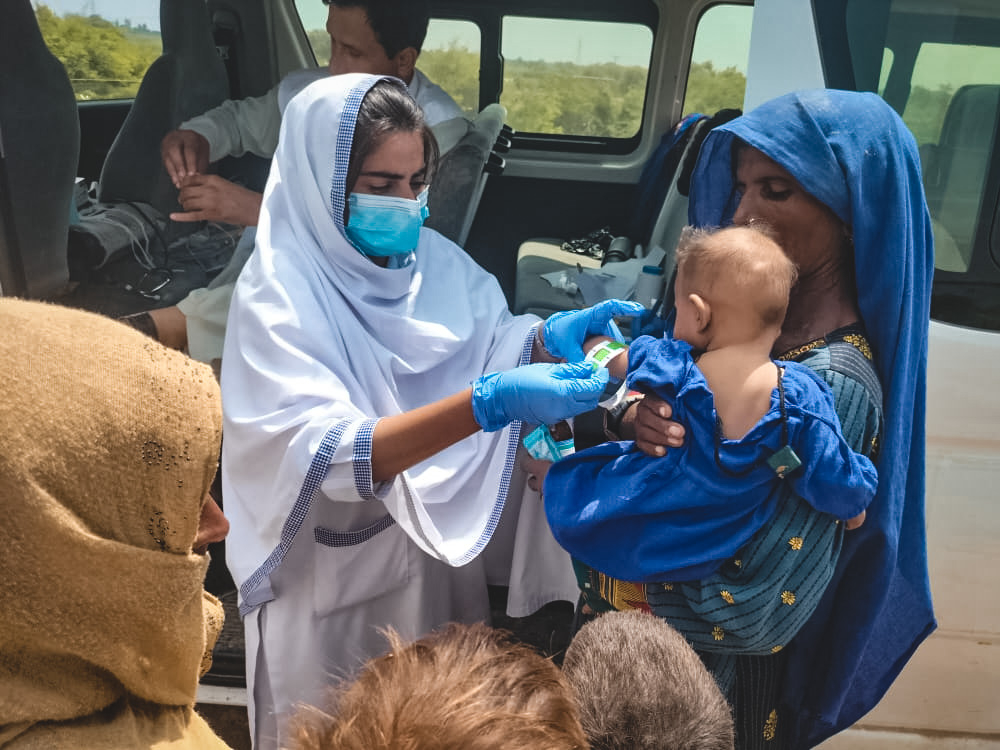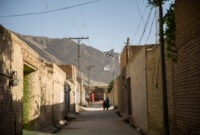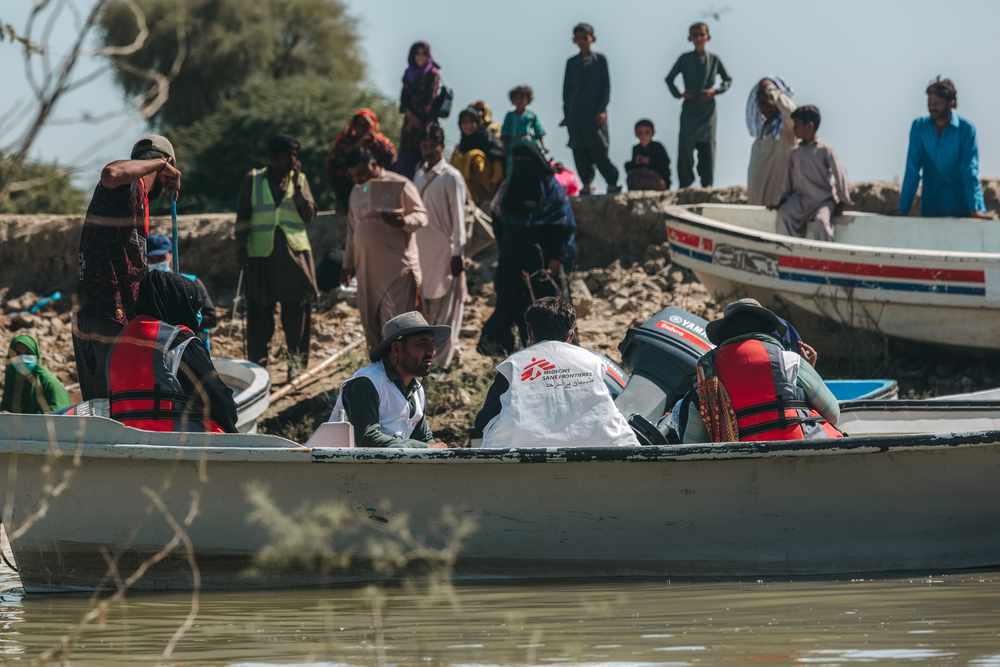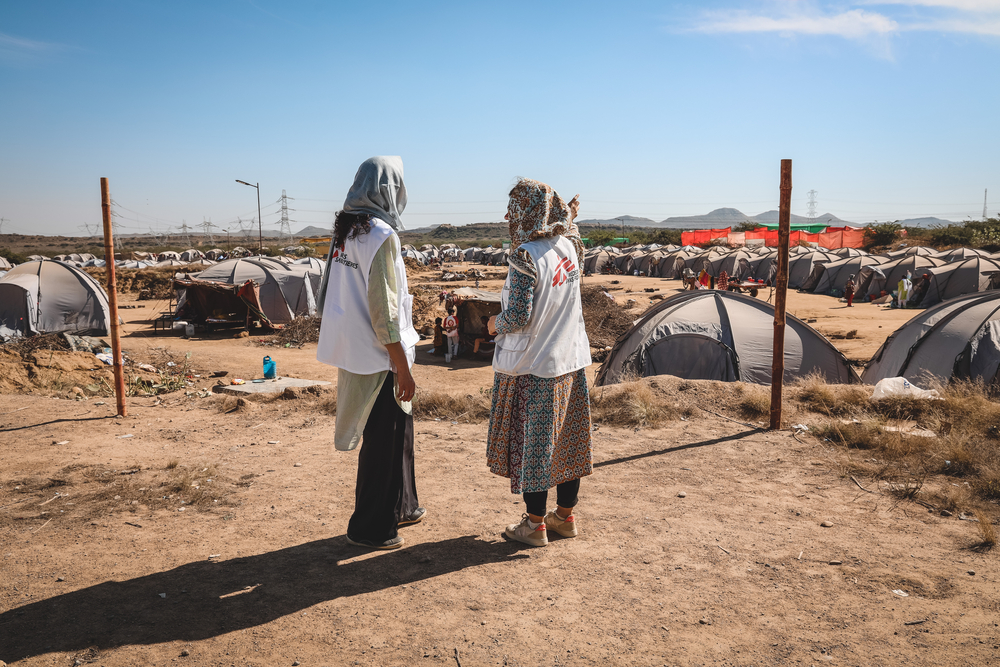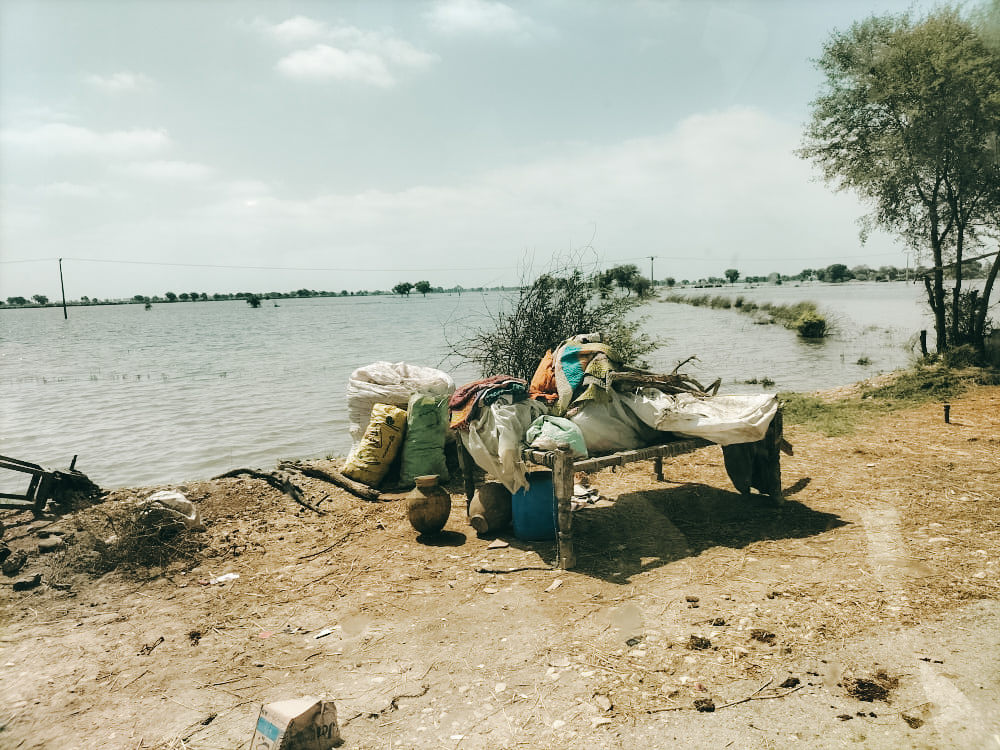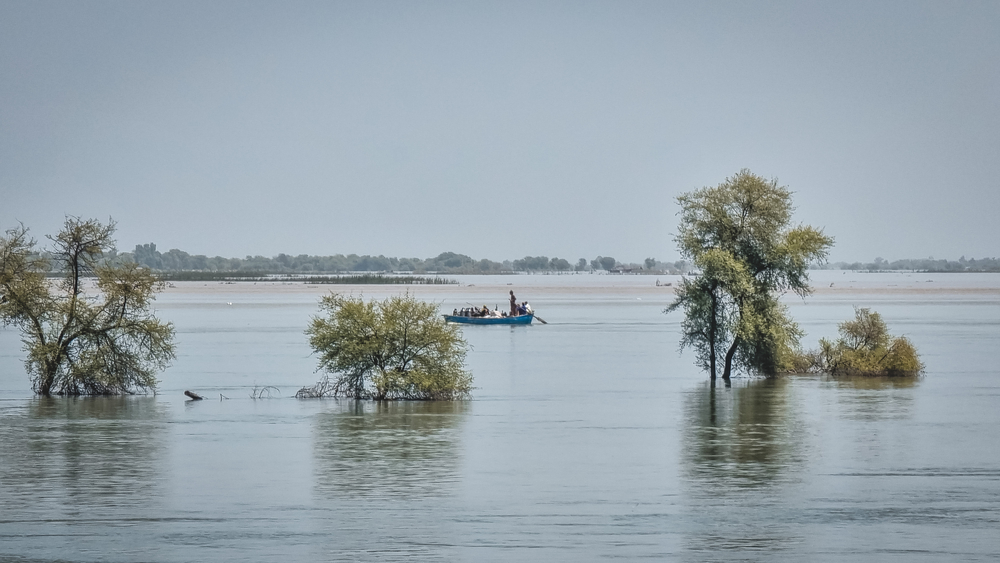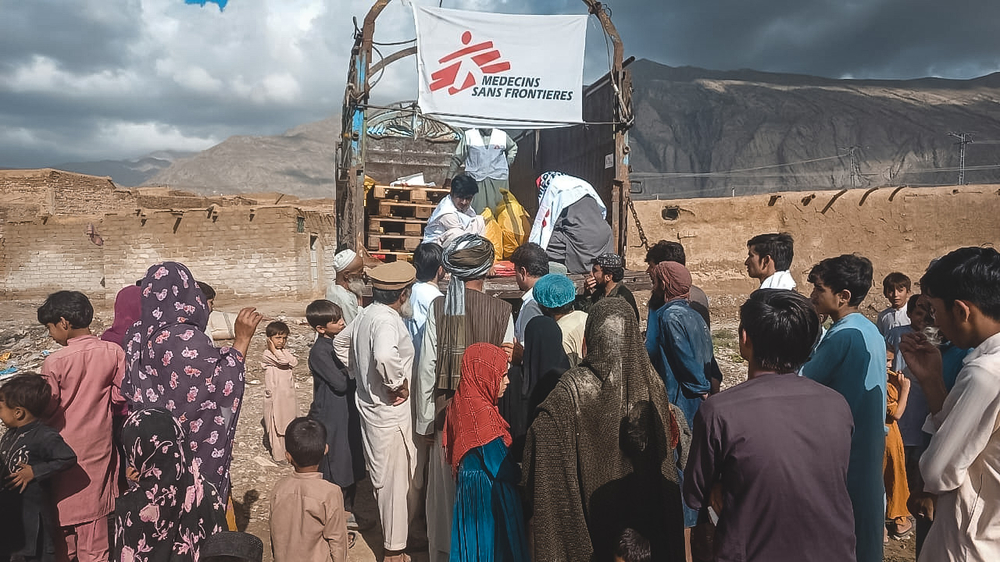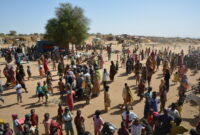Flooding in Pakistan: “It was so heartbreaking to see our village underwater.”
Akeela, an Outreach Counsellor with MSF since 2020, lived in the village of Mir Gul Hassan Manju Shori Barun Naseerabad, which is around 5 kilometres from Dera Murad Jamali (DMJ) in Balochistan. This was one of the areas hardest hit by monsoon rains and extreme flooding that left one third of Pakistan underwater. After losing her home, she is now responding to the emergency.
“In June and July, we received normal rainfall and daily life was going fine. I used to visit my family on weekends in my village. We used to visit the communities and help raise awareness about mother and child health and different diseases. It was August and oddly we were receiving more continuous rains than normal years. On August 17, the water started coming towards our village and we were asked to leave immediately.
Read more about our emergency response to the flooding in Pakistan.
In the rush, my parents and younger siblings left the village, whereas one brother and one sister were left behind to take care of our cattle as my family had a herd of cows and goats. They took the cattle to higher ground but when they saw the flood water start to cover the village, they had to flee. My siblings took shelter and climbed up the rooftop of a nearby house. They watched as the water started to increase, and our cattle, houses, and farm, all washed away. The water came up to eight or nine feet high. It was so heartbreaking to see our house and village underwater.
“When MSF called, I couldn’t stop myself from saying ‘yes’.”
I received a call from MSF requesting support for the emergency response, I couldn’t stop myself from saying ‘yes’. We reached faraway villages, and found families were living in the open without shelter. I saw some people using two wooden beds (charpai) pushed together with plastic covers as shade on the side of the road because their houses were under water, and they did not have a home or enough food or clean drinking water. Still, the rain continued, on and off.

Mobile Clinics essential to emergency response to flooding in Pakistan
In our mobile clinics, we are seeing patients with respiratory infections, diarrhea cases, malaria cases and skin infections. The people here are drinking and using the flood water, which is contaminated, and it is spreading several diseases. Our doctors are completing check-ups, providing medications and referring pregnant women and people who require specialist care to an MSF facility in District Headquarters Hospital, Dera Murad Jamali.
During our response, we set up a mobile clinic in my flood-affected village, also called ‘tanki wala’. As we were moving towards my village, I felt a sense of contentment. The people of my village know my work with MSF well as I visited them many times during our outreach activities. All the houses in my village, including my house, are still in the water and they will take up to a month to completely dry out.
I watched as parents, on seeing our medical camp, crossed the flood water seeking treatment for their children. But many people in other more remote villages are still waiting for help to arrive. I can feel their pain as many have left their houses and are living in camps without help. Some of them are also cut off from the cities and access is difficult.
They are a reminder of why we continue our daily mobile clinics and to provide clean drinking water to the displaced families.”
